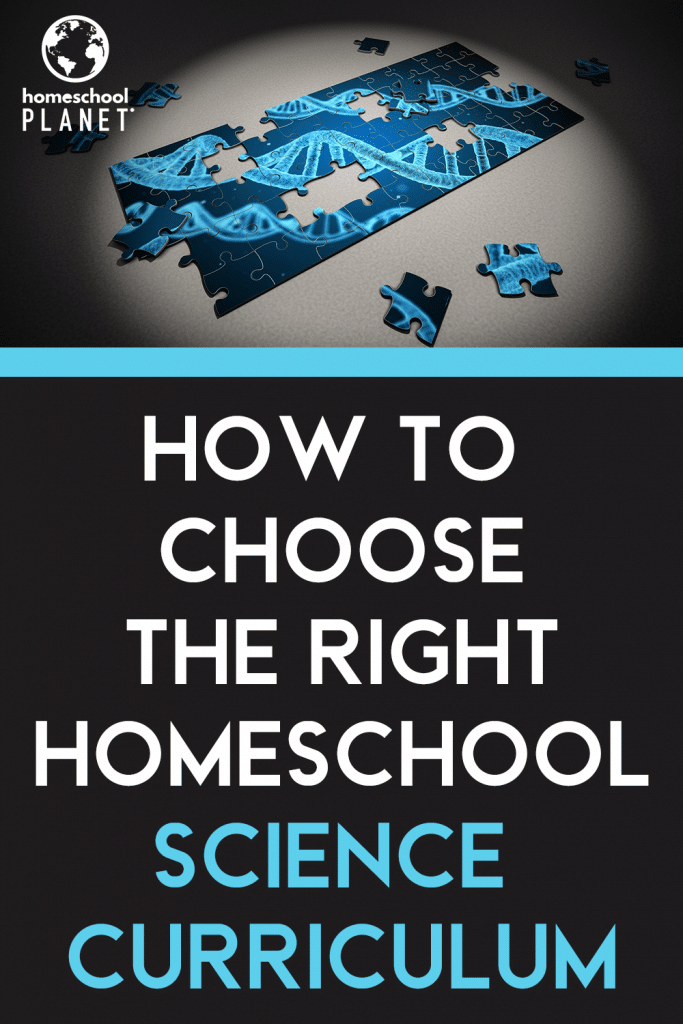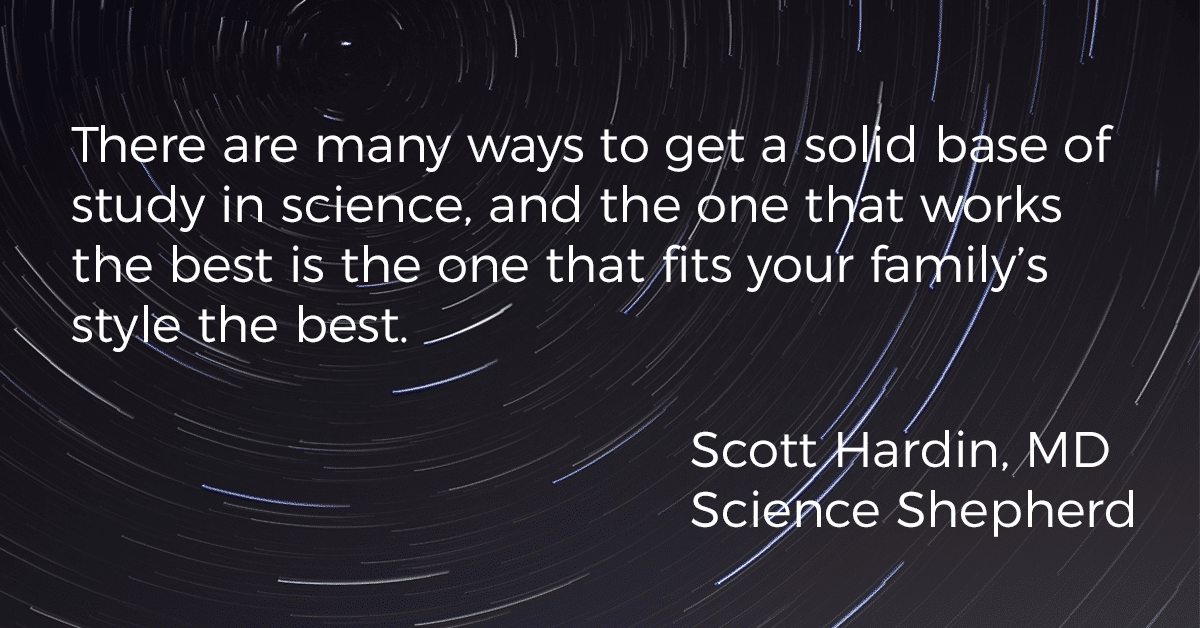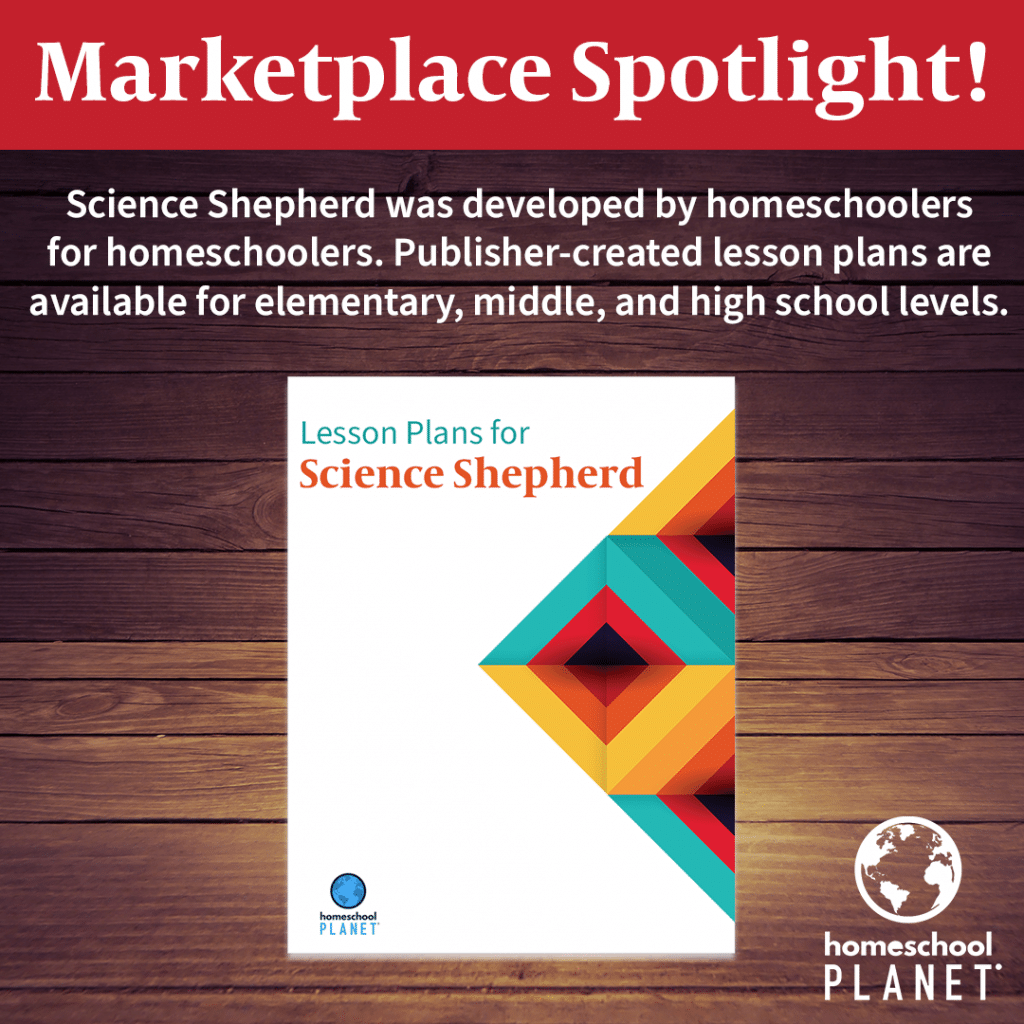How to Choose the Right Homeschool Science Curriculum
Please enjoy this article written by the author of Science Shepherd, Scott Hardin, MD
A little over ten years ago, our family entered the dreaded search for a suitable higher-level homeschool science program. As a physician, I had strong convictions about what made a science course “right”, and, although there are a lot of solid programs available, I did not find one that was as straightforward as I think works most effectively for most students. So, I wrote one. We’ve now been homeschooling for over 20 years, and that science program has grown into Science Shepherd.

Obviously, writing a curriculum can’t be the solution for every family, and Science Shepherd curriculum won’t be the solution for every family either. So how can you find the right science curriculum for your homeschool? In no particular order, here are three questions to consider as you start (and continue) that process.
What are our family objectives?
Especially as you are just starting out in homeschooling or have younger kids, what you want to accomplish together is an important question to ask and can help guide your curriculum choice (in any subject). Do you want to take science together, even across several grades? You’ll want a course that lends itself to that. If you want a more hands-on program, or one that allows you to spend more time outside or in a museum – we’ve got a free guide for that here – you’ll need to look for an accompanying activity book (or be ready to find one), and see what the daily time commitment is to textbooks, videos, and other classroom material. If you’re a family of learners who need hands-on lessons and want to foster learning that way, you don’t want to find yourselves stuck in a textbook, and vice-versa. Even be thinking about what’s more important to your family than science. If you have a passion for art, don’t let your schedule be dictated by an intensive science program. There are many ways to get a solid base of study in science, and the one that works the best is the one that fits your family’s style the best.
How does my son or daughter learn best?
One of the great strengths of homeschooling is being able to tailor your curriculum choice in each subject to the unique learning style(s) of your child(ren). Consider things like whether a video or text-based program is right, if a co-op setting is better for a particular subject, or if you’ll need to provide more one-on-one time (and so need a good parent book). This is also a dynamic concept; what worked well in 5th grade may not be the best for 7th grade. This is especially prone to change as reading, comprehension, and critical thinking skills improve. Be considering your student’s growth in this area regularly. Also be aware that this question goes beyond video versus text-based programs. Thing about note taking and study habits, the need for repetition, or dislike of it, structured review, etc. Find a science program that will fit your student as nearly as possible in all these areas. The habits your student learns now will be part of their learning/studying for a lifetime!

What are my son’s or daughter’s objectives after high school?
This consideration won’t be as important early on, but as your student(s) near and enter high school, you’ll want to begin considering what might come next. What does he or she want to do in college? In a profession? Starting to ask these questions when it comes to science (and math, too) earlier (7th or 8th grade) may help save a lot of stress for both of you later. These are particularly important years for science-education, as the foundation is laid for more advanced concepts. If a career in biology, medicine, pharmacy, nursing, etc. seems like a possibility, you will want to start planning early for a more rigorous science program (and don’t leave out the labs) so you aren’t scrambling senior year to finish a college-prep chemistry class. Of course, plans change, and perhaps your student’s interest in science will be sparked in 10th grade, and you’ll have to adjust at the last minute for more advanced studies to prepare for college. Or maybe that initial interest in science will wane, and the last year of AP Biology you had planned becomes Intro to Photography. That’s great! Time to leverage the flexibility afforded by homeschooling.
When our family first entered homeschooling, choosing a science curriculum, particularly in high school, was a daunting proposition with few options. Today, there is an abundance of great science programs available, maybe to the point of seeming to offer too many options. My hope is that by considering these three questions – What are your family objectives? How does my son or daughter learn best? What are my son’s or daughter’s objectives after high school? – you will be able to focus on a few key factors and have an easier time finding the right science curriculum for your family.
>> CLICK HERE to Learn More About Science and Shepherd and Get a FREE Sample! <<


